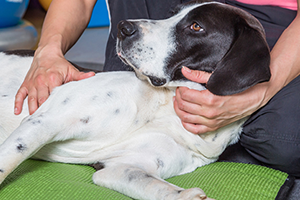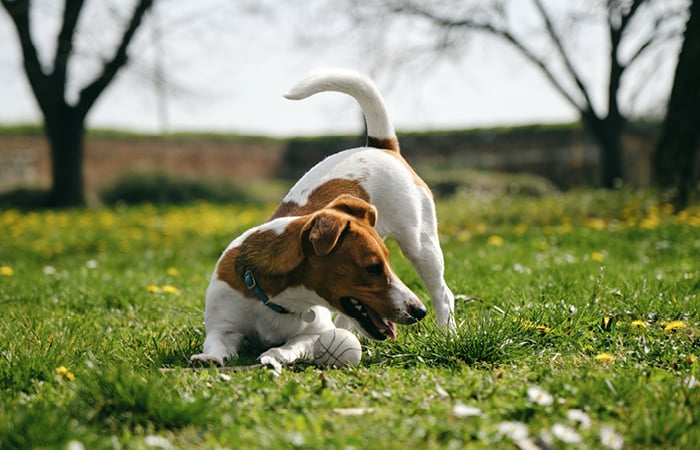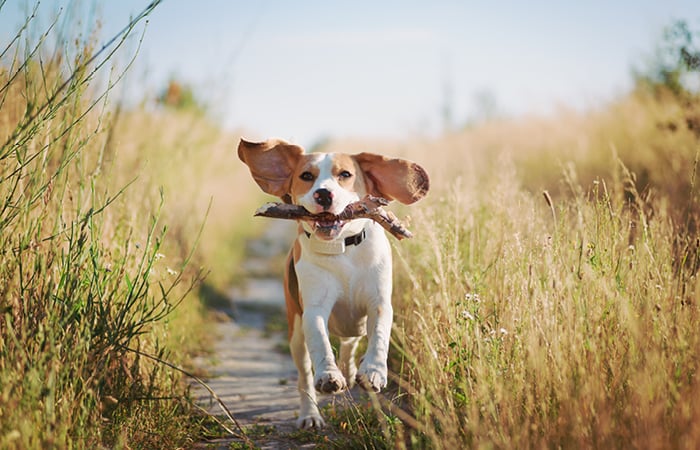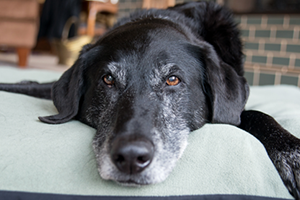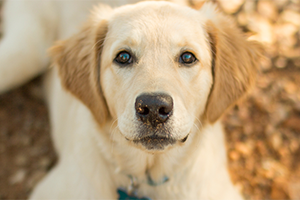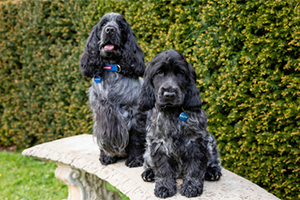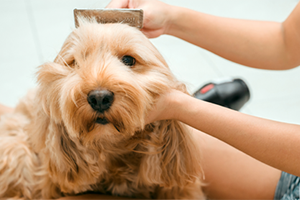
An inquisitive and high-spirited companion always looking out for an adventure
Vital stats
Swipe to view more
| Size: | Small |
| Coat: | Smooth coat or wire haired |
| Exercise | 1 hour a day |
| Life span: | 12+ years |
| Breed group: | Terrier |
| Temperament: | Affectionate, curious, energetic, intelligent |
Jack Russell temperament & personality

- With their feisty personalities, they aren't always suited to homes with young children or small pets but their loyal and energetic personalities do make them a popular family pet.
- The breed can usually be socialised to get along with your cat, but they have a high prey drive and may struggle to hold back from chasing wildlife they spot on your walks.
- Jack Russells’ fearless and curious natures also mean they have a tendency to wander off, so good recall training is especially important.
- Despite being part of the independent Terrier breed group, Jack Russells are more prone to separation anxiety than other dogs in this group and will be happiest in households where someone will be around for most of the day.
- Like other Terrier breeds, Jack Russells can be very vocal and are prone to barking, especially at other dogs. Good socialisation from a young age is key and it’s a good idea to take your Jack Russell puppy to training classes to introduce them to other dogs early on.
Jack Russell training & exercise

Training tips
- Good lead and recall training is essential for adventure-loving Jack Russells to keep them safe when out and about.
- Jack Russells are confident and headstrong, so need a firm but fair trainer to keep them in check. Use plenty of positive reinforcement to let your pup know there’s something in it for them.
- With intelligence and energy to spare, Jack Russells will love learning tricks for some extra mental stimulation.
- Jack Russells are a vocal breed and excessive barking can be a common behavioural problem. Good training, plenty of exercise and early socialisation should keep this in check.
Keeping them happy
- Keeping your Jack Russell occupied and active is key to having a happy dog. Jack Russells are good dogs for people who are happy to devote at least an hour a day to substantial, play-filled walks.
Exercise
- Despite their small size, Jack Russells are energetic dogs who need at least an hour’s exercise every day.
- You should also allow your Jack Russell to run around in a secure outside space between walks to stretch their legs and satisfy their inquisitive spirit.
Game ideas
- Re-channel your Jack Russell’s high prey drive into a game of “fetch” which will allow them to satisfy their instinctive desire to chase.
Common Jack Russell health conditions

Jack Russell grooming

Jack Russell Terriers can have rough or smooth coats, or a mixture of the two. The rough-coated variety are referred to by some dog lovers as 'long-haired Jack Russells'.
- JRTs shed hair heavily and require brushing at least once a week, especially during the moulting seasons. You may want to invest in a good quality vacuum.
- Much like the Border Terrier, Jack Russells with wiry coats may need hand stripping to remove dead hair. It might be worth visiting a professional groomer to find out if this is necessary.
- Their teeth will need to be checked regularly and will require daily brushing to prevent gum disease, which is a common health issue in Jack Russells. It’s a good idea to introduce this as a part of your puppy’s routine early, as it’ll help familiarise them with the process
Find out more dog grooming tips to help your pet stay in the best condition.
Jack Russell nutrition

Jack Russell Terriers vary in size, but they're generally small dogs and rarely grow bigger than 38cm in height. So, maintaining a controlled diet with the right amount of exercise is important to ensure they stay fit and healthy.
- Vets recommend feeding a high-quality, breed-appropriate food twice a day and sticking to the portion guidelines found on the back of pet food packaging.
- JRTs are usually full of energy which means they don't tend to gain weight easily.
What to know before you buy or rehome a Jack Russell

Considering buying or rehoming a Jack Russell Terrier? Before you find a puppy or adopt, here are a few important things to remember.
- Even though some JRTs have short and smooth coats they are prone to shedding, so may not be the best choice for people with allergies.
- As they are full of energy and love to chase you will need to ensure you have a secure garden, to ensure they don’t wander off.
- Jack Russell Terriers were originally bred as hunting dogs so they are extremely energetic and active. You’ll need to ensure that adult dogs have at least 1 hour of exercise per day, plus mental stimulation. They can become rowdy and very vocal due to lack of exercise and boredom.
- Like all dogs you will need to ensure they are well-socialised as puppies and trained. This will help your Jack Russell get along well with you and others, including other dogs. They do tend to be less tolerant around younger children, which makes them better suited to families with older children.
- It’s important to get your JRT puppy from a reputable breeder so you can meet the puppy’s mum and check she has the temperament you’re looking for. ‘Lucy’s Law’ dictates that new puppies or kittens must be bought directly from a breeder or adopted from rescue. Third party sellers are illegal.
Jack Russell frequently asked questions
Discover some of the most popular dog breeds
Jack Russell insurance considerations
We always offer these things as standard:
Physiotherapy & pet therapies
Along with physiotherapy, which is covered within the Vet Bills benefit, we also cover Pet Therapies like herbal medicine, homeopathy and acupuncture. You can also claim for hydrotherapy, up to £500 per illness/injury in dogs and cats (no additional limit for rabbits).
Petplan is a trading name of Pet Plan Limited (Registered in England No. 1282939) and Allianz Insurance plc (Registered in England No. 84638), Registered office: 57 Ladymead, Guildford, Surrey GU1 1DB.
Pet Plan Limited is authorised and regulated by the Financial Conduct Authority. Financial Services Register No. 311969. Allianz Insurance plc is authorised by the Prudential Regulation Authority and regulated by the Financial Conduct Authority and the Prudential Regulation Authority. Financial Services Register No. 121849. Pet Plan Limited is a subsidiary of Allianz Insurance plc.




































